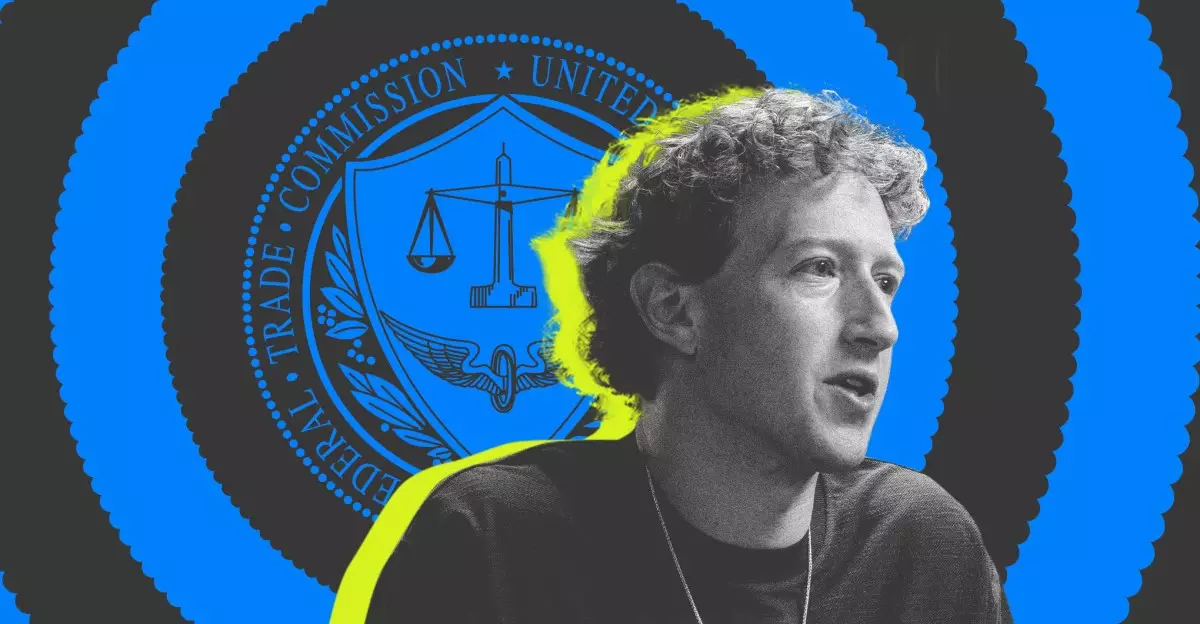Meta, the parent company of Facebook, Instagram, and WhatsApp, embodies the epitome of a modern tech titan. However, its trajectory could have dramatically diverged from what we know today. As CEO Mark Zuckerberg stands in the courtroom facing the scrutiny of the Federal Trade Commission (FTC), he reveals insights not only into the evolution of Meta but also into the uncharted paths the company could have taken. With a focus on acquisitions and competitive positioning, the decisions made at the crossroads of innovation often shape the futures of technological giants. The courtroom has become an unlikely stage for a deep reflection on corporate strategy and the nature of competition in the digital age.
The Antitrust Conundrum
The ongoing antitrust case against Meta is illuminating critical questions about market definition and competition. The FTC posits that Meta’s acquisitions of Instagram and WhatsApp were calculated moves to eliminate potential competition, thus securing its monopoly status within the realm of personal social networking. These assertions provoke a discussion about the intentions behind corporate acquisitions: are they defensive maneuvers or legitimate strategies for growth? Zuckerberg’s resistance to neatly aligning with the FTC’s narrative sparks significant debate. He describes the social media landscape as “fluid,” underscoring that competition can emerge from unexpected quarters like TikTok and YouTube, which push the boundaries of social interaction and user engagement.
The implications of defining the market narrowly raise ethical questions. The FTC’s perspective appears to construct a framework solely to target Meta, potentially overlooking the vibrant ecosystem of platforms that vie for user attention. In an era where technology evolves rapidly, can any definition of a market remain relevant for long? Zuckerberg’s testimony highlights the blurred lines between platforms like Facebook and professional networking sites such as LinkedIn, prompting one to consider whether it makes more sense to perceive the industry through a lens of overlap rather than distinct categories.
Forks in the Road: Alternative Paths for Meta
During his testimony, Zuckerberg glanced into the rearview mirror, reflecting on pivot points that could have taken Meta in entirely different directions. In a particularly striking moment, he revealed how a $6 billion bid for Snapchat in 2013 could have shifted the power dynamics within the tech world. Such “what if” scenarios not only serve to showcase Zuckerberg’s foresight but also reveal a richer, more complex story of the competitive tensions that characterized the tech landscape during those formative years. Imagine a universe where Snapchat flourished under Meta’s wing, morphing into a combined powerhouse that stifled rivals before they could even gain traction.
Furthermore, Zuckerberg’s admission that he toyed with the radical idea of wiping Facebook’s friend lists is emblematic of the trials of innovation within a monolithic structure. The urge to recapture the initial magic of social connections highlights a longing for authenticity that often feels lost in the chaos of algorithms and engagement metrics. Such reflections serve as a stark reminder of the delicate balance between growth, user experience, and corporate identity. Would a reset genuinely rejuvenate user engagement, or would it alienate loyal users who have invested time in curating their online social lives?
Advertising and User Experience: A Delicate Balance
Zuckerberg’s discussions of the company’s approach to advertising raise eyebrows in light of claims that Meta has steadily increased its ad load due to a perceived lack of alternatives for consumers. The notion of a feed filled solely with advertisements invites serious concerns about user degradation in value perception. While Zuckerberg claims that users see ads as valuable, it beckons an exploration into the finer nuances of advertising versus organic content. When does engagement become exploitation? As Meta stands at the intersection of connectivity and monetization, the choices made here resonate deeply throughout the tech industry.
It is intriguing to ponder the internal documents showcased during the trial, which make evident the fears that fueled strategic decisions. The speed at which Instagram was gaining traction threatened the core of Zuckerberg’s empire, leading to a series of maneuvers now scrutinized for their implications on competitive fairness. How often do the specters of fear and competition drive the narratives behind corporate actions, blurring the lines between innovation and self-preservation?
The courtroom drama unfolding in Washington, D.C., serves as a lens through which we can dissect Meta’s extensive history. The reflections, speculations, and revelations illustrate both the weight of corporate responsibility and the complexities of dominance in a rapidly advancing sector. As much as the trial scrutinizes Zuckerberg’s decisions, it also compels us to envision the broader implications of technology’s role in our lives, raising questions of ethics, user trust, and the true cost of innovation.

